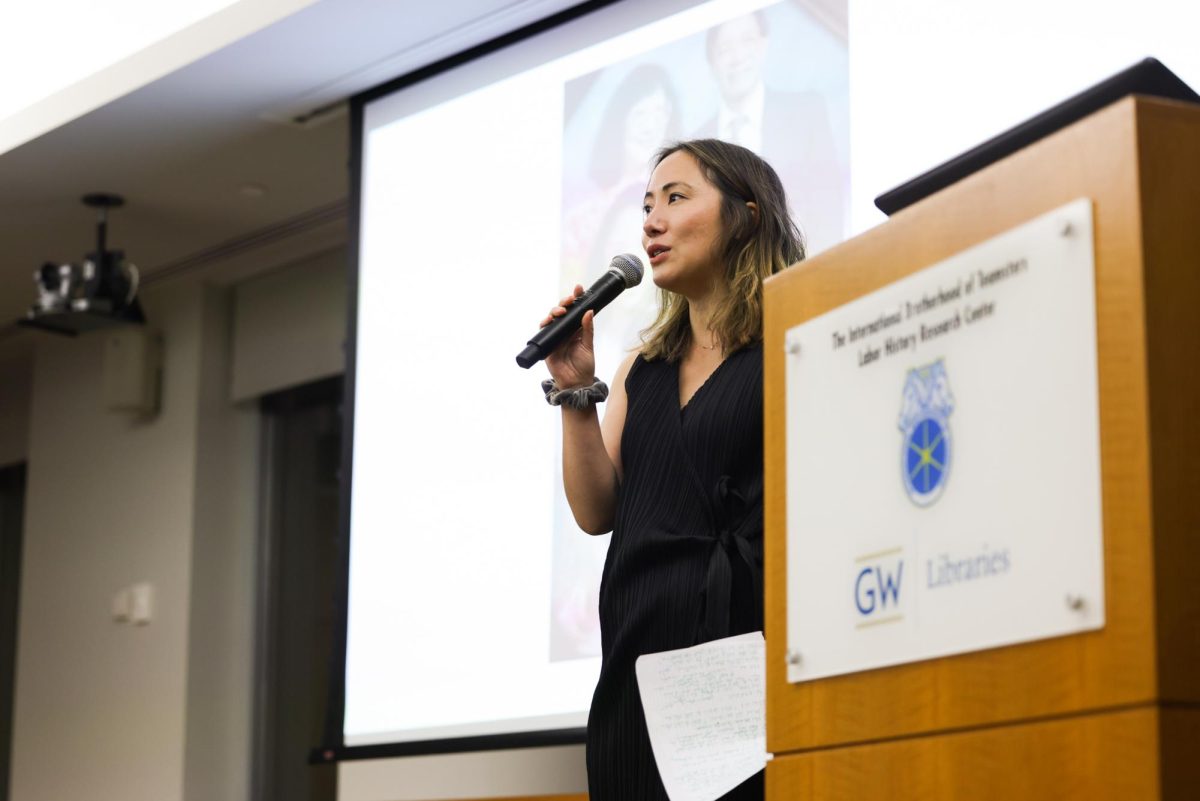Funneling into a spare Duques room for a seven-hour beer- and pizza-fueled brainstorming session, an assembly of graduate students scribbled notes on whiteboards, vigorously vetting out each other’s ideas.
With a month to go before their May 2012 graduation from the GW School of Business, the five friends were determined to release a product to leave their mark before embarking on separate business endeavors.
They created GONO, set to release in Apple’s app store in mid-March. The survey application allows users to publicly or privately submit polls to friends and other app users to receive instant, interactive feedback.
GONO’s founder and co-creator Todd Butler said the app was inspired by the idea of girls mass-messaging their friends to determine whether an outfit choice is a hit or a no-go.
“People nowadays more than ever care about what society thinks. With social networking bringing the world closer together, everyone is very aware of their social presence,” Butler, a 2012 graduate, said. “So when it comes to buying something or picking something out, people love to get the feedback of their closest friends.”
The program, which can be accessed via the phone app, email or online, allows users to send two contrasting photos or a “yes or no” question to a mass audience, be it a selected group of people or all GONO users.
The responses are then presented in graphs, displaying instant public sentiments via polling.
“You can totally picture frats and sororities using this to be like, ‘Which beer should we buy?’ But we also can see this being hijacked by so many different demographics, whether it be about politics or just something fun,” Butler said.
The free app also allows advertisers to present surveys to public users as well, funding the app’s development.
Because the program is framed around poll responses, users may unknowingly respond to ads, a quality Butler says is both unobtrusive to users and beneficial to companies seeking focus-group-style feedback on their products.
“This app represents the solution to mobile advertising. There’s nothing sneaky about it. Someone is putting out a public survey – it’s just from a company instead of a person,” Butler said.
For 2012 alumnus and GONO co-founder Sachin Anand, spearheading public survey technology offers advancements beyond GONO’s social, interactive format.
Anand, who teaches an online new media strategies course at the University of Virginia, said that despite the convenience of the online class format, it makes it harder for him to ascertain student feedback. He called polling technology in a real-time format beneficial to his course.
“It’s not easy to poll students in real time and to gauge student sentiment of where they are in the class and if they can understand the topic,” Anand said.
As the presence of social media increases, Butler said an aptitude for coding is an ever more valuable commodity in the business world.
He said this cultural shift might alter business school students’ approaches to entrepreneurship.
“I think it’s one of those things that has replaced a lot of the MBA’s mind-sets in terms of the old brick-and-mortar, ‘I’m gonna go out and start a business and change the world’ mentality,” Butler said. “It’s more of, ‘Let me find something really creative that’s a niche that I can create in the basement of my house and launch it.’ ”
Butler also noted that business school programs are adapting to the expansion of technological and app-related businesses.
While some users may pose deliberately trivial questions – in the app’s beta phase, for example, Butler posed a poll pitting Nicolas Cage against a sponge for the “best actor” superlative – Butler hopes to devise an app that is ultimately useful to a mass market.
Sophomore Josh Dingus, GONO’s marketing intern, touted the app’s versatility in reaching a range of audiences and purposes.
“You can have your friends put in input, which is extremely valuable. But you can also just use it to take pictures of things that maybe you think are funny and share them. I think it’s also an extended version of something we have now, sort of like Instagram,” Dingus said. “It’s extremely malleable in that sense.”





